Some of the activities were simply recreated, such as bread or pork, but most were developed from scratch. We adapted and remodeled the existing buildings on the Freixo do Meio estate and gradually established a series of small food production facilities:
All the processing units are open for visits.

Freixo do Meio is a place where people, ideas, cultures, traditions, and knowledge converge, bringing together their expertise and flavors in food transformation.
The skills for making bread, sausages, pepper paste, and pork come from the village of Foros de Vale de Figueira.
The remaining expertise was gathered from around the world: our charcuterie combines the traditions of the Viennese school from Austria with Alentejo traditions; in Catalonia, we were inspired by methods of preserving vegetables and producing natural wine; our approach to handling and preparing acorns results from a blend of traditions from the Iberian Peninsula, Germany, Greece, and Italy.
In our shop, we offer products from our agroforestry systems, both fresh and processed, as well as traditional Alentejo bread and acorn bread baked in a traditional oven.

House No. 1. The small winery on the estate, the smokehouse chimneys, and the bread oven are the only original food production structures still active today. The size of the mill, reduced by us to one-third, highlights the ancestral importance of vine cultivation in our montado. Since 2005, we have specialized in natural red wine and natural grape juice, with an annual production not exceeding one thousand liters. Mr. António Abel and Alfredo are in charge of the house’s nectars.
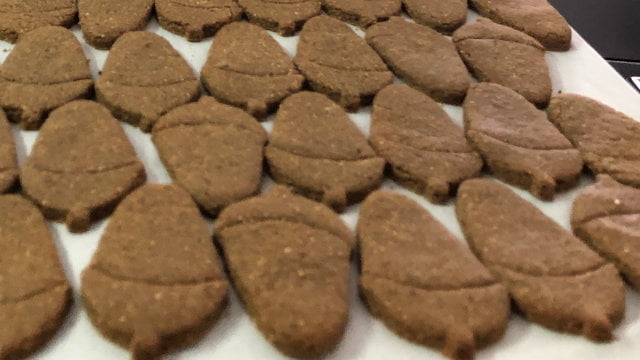
House No. 7. This is the acorn processing unit at Freixo do Meio, which annually processes ten tons of fresh acorns. Under the supervision of Edite Ferreira, the unit dries the acorns in January and February, which are then processed throughout the year. The main products are flour, crumb, infusion, and shelled acorns.
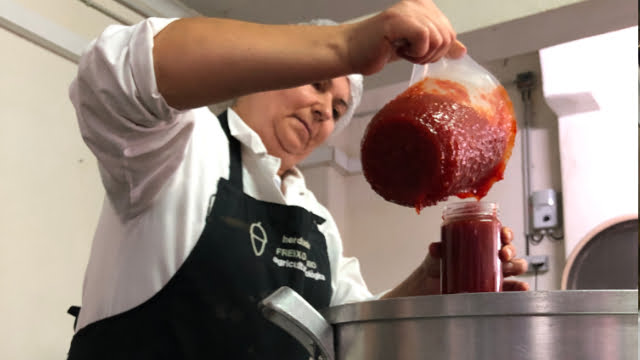
House No. 8. Our goal has always been to preserve surplus using methods that best maintain quality, require fewer resources, and contribute to a smaller ecological footprint. In this unit, equipped with an autoclave, we prepare soups, vegetable preserves, vegetable pâtés, and vegetable burgers. The unit features a temperature-controlled freezer for flash freezing and is licensed under No. 892-2018.
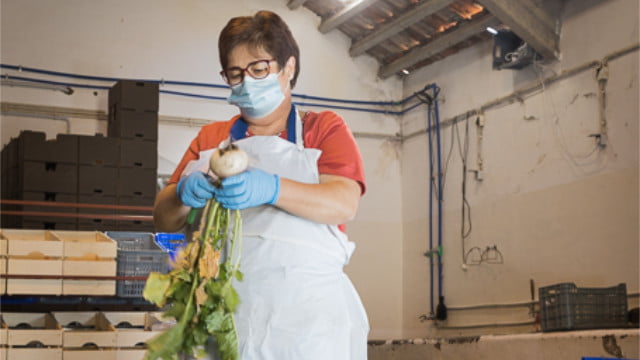
House No. 9. The fresh vegetable unit receives, washes, selects, and packages approximately 100 kg of vegetables daily, produced by us and our partners, as well as the wild plants and mushrooms we harvest. Located in the former mule house at the Monte da Herdade do Freixo do Meio, this unit features a large cold storage chamber.

House No. 13. The Monte Kitchen, now located next to our canteen in the former cattle barn, prepares not only meals for our visitors but also a wide range of foods that enhance process efficiency and reduce food waste. Pies, pastries, quiches, toasts, granola, cakes, and other foods are cooked here. The kitchen is licensed as a restaurant (PROCESS No. 279725 SAFM).
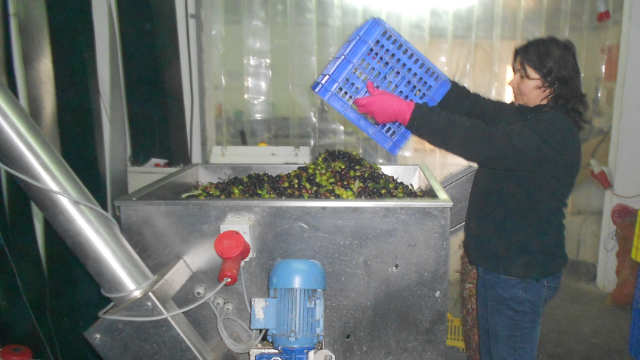
House No. 14. Olive oil production at Montado do Freixo do Meio dates back to the time of the Phoenicians, around 1000 B.C. Nearby, the ancient olive tree is over a thousand years old. The modern centrifuge mill is certainly one of the smallest in the world but is harmoniously integrated into our ecosystem. In addition to the olive oil, we produce a Galician olive juice, and the remaining pulp and pits are fermented and incorporated into the diet of Alentejo pigs. The mill processes two tons per day and is licensed under No. 892-2018.

House No. 15. The bakery at Freixo do Meio, originally known as the “Forno do Pão,” was the last food processing activity to be abandoned on the estate and the first to be restored in the 1990s. In the centuries-old wood-fired oven, which has a capacity for 62 one-kilogram loaves, we bake once a week the genuine Alentejo Bread and the ancient Acorn Bread. We only use live yeast for fermentation. The unit is licensed on the Single Licensing Portal under No. 441/2018-1.
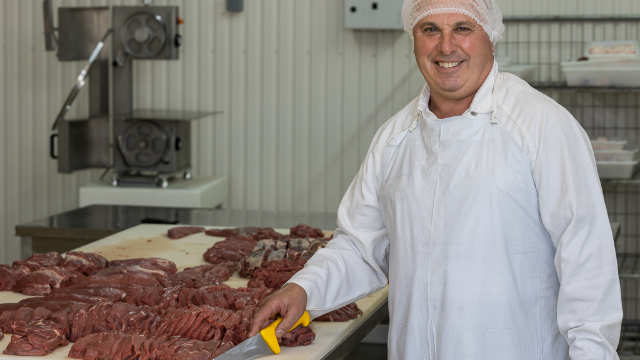
House No. 18. The meat processing unit at Freixo do Meio was the first small industry of its kind to be built on a farm in Portugal. It is authorized to process beef, pork, lamb, goat, poultry, and game. We handle approximately 800 kg of meat from various species each week. This unit is currently managed by Abel, Cunha e Semedo, Lda. License No. 893/2018 DGV.

House No. 19. The artisanal and traditional production of Alentejo pork sausages was, along with bread, the first legacy we restored. The large chimneys were there for a reason, so we brought together two local women, a pig, and a basin, and started from there. Today, in addition to the renowned smoked Alentejo sausages made with oak wood, we specialize in high-quality Austrian charcuterie. This unit is currently managed by Abel, Cunha e Semedo, Lda. License No. 893-2018 GDV.
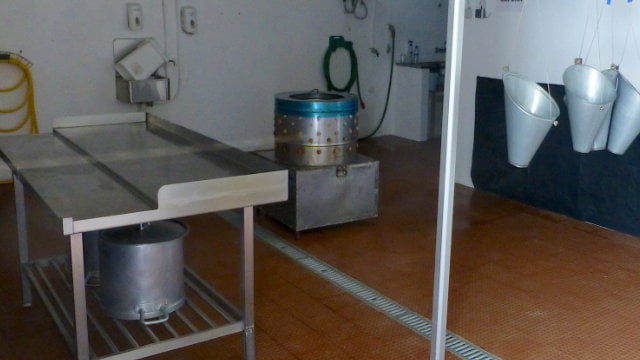
House No. 20. Being able to carry out poultry slaughter ourselves, as a conscious act of regulation for our ecosystem, was a partial victory we achieved. We are working towards the day when we can also take responsibility for the slaughter of other species. The unit is limited to processing 100 birds per week and is licensed by the DGV under A2218/PTVW69R-V.

House No. 21. The preparation of eggs obtained from the Freixo do Meio agroforestry system is carried out at the egg sorting unit located in the old barn on the estate. Daily, we inspect, classify, and stamp approximately 300 organic eggs using an ovoscope. The center is licensed under No. 474/2018-1.
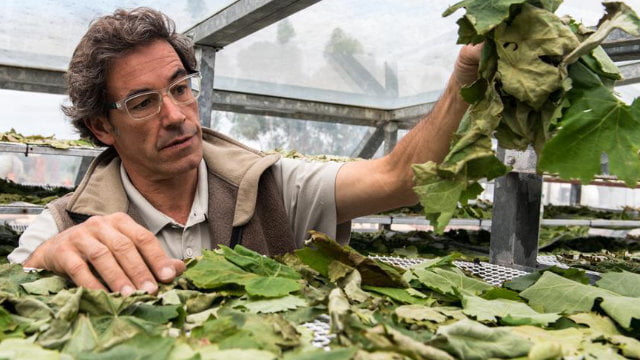
House No. 22. The Solar Dryer installed at Monte do Freixo do Meio was developed at the Oeiras experimental station with the goal of enhancing an age-old practice: drying food for preservation. The unit, featuring 300 cubic meters of tempered glass, dries fruits, vegetables, leaves, herbs, and mushrooms using only solar energy.